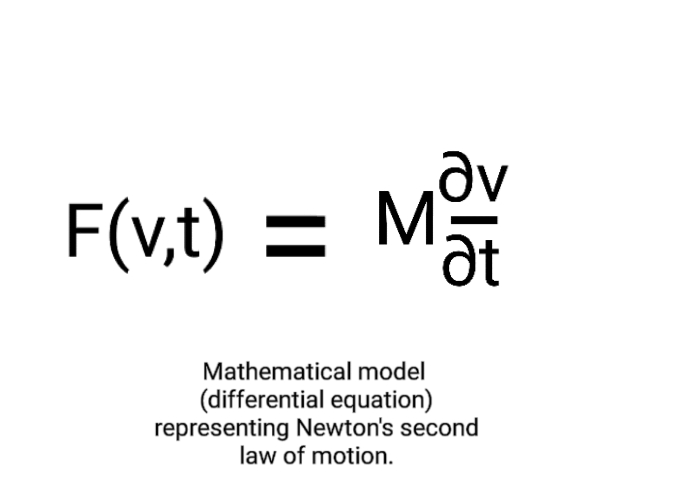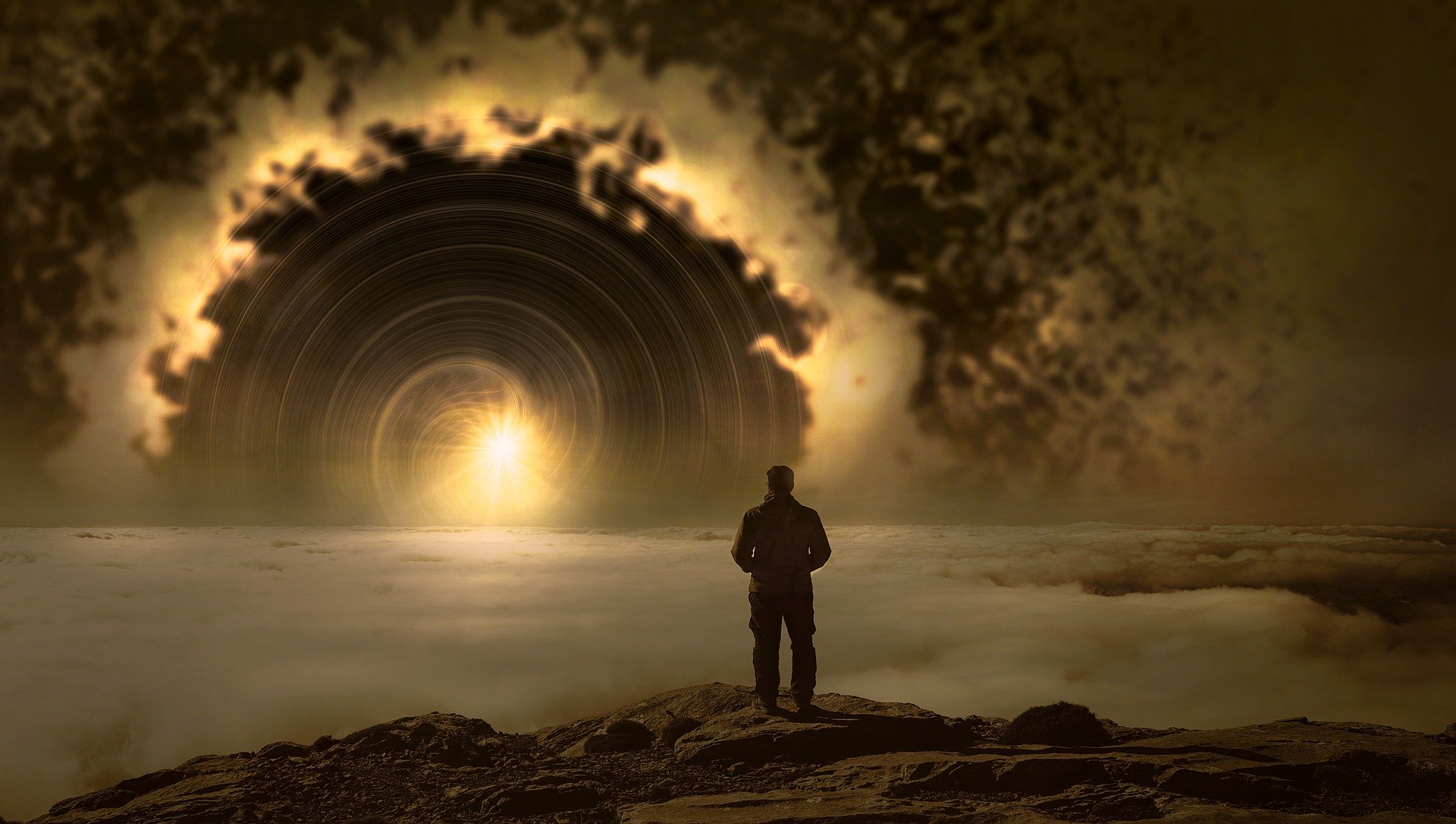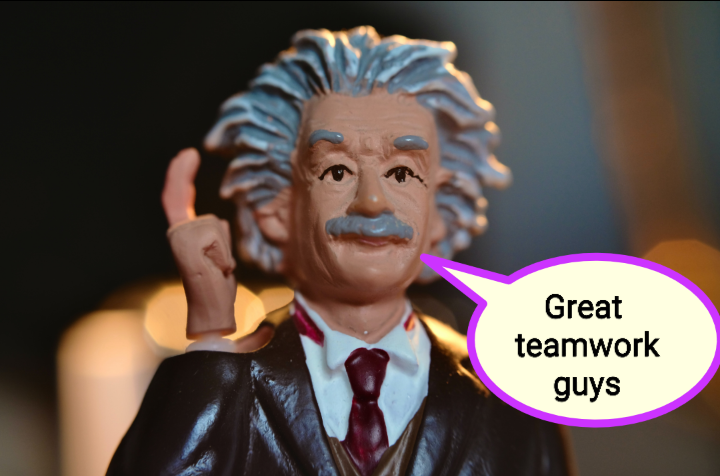Understanding Determinism, Predeterminism And Superdeterminism (Part 1)
Since the inception of quantum mechanics, there has been struggles especially amongst physicists and philosophers as to what it says about the nature of reality and in some cases, these struggles goes as far as questioning freewill - a concept majorly attributed to conscious entities like us. When freewill is summoned, then it's rival - determinism, is also summoned. Unlike freewill, determinism seems to have other variants and for the purpose of our discussions, we shall be treating only three of these variants namely causal determinism, predeterminism and superdeterminism. The last one (superdeterminism) seems to be very unpopular and it was developed in attempts to make sense of quantum mechanics.
There are many interpretations of quantum mechanics of which falls into groups, some fall under the class of "spooky action at a distance", some fall under the class of "hidden variables" and some others fall under both (spooky action at a distance and hidden variables). Superdeterminism seems to be under only hidden variables but one reason it's not as popular as other interpretations is that it's often mistaken for predeterminism and this confusion may have began with the statements of John Stewart Bell in attempts to disprove Einstein (Einstein was in support of hidden variable theories).
There is a way to escape the inference of superluminal speeds and spooky action at a distance. But it involves absolute determinism in the universe, the complete absence of free will. Suppose the world is super-deterministic, with not just inanimate nature running on behind-the-scenes clockwork, but with our behavior, including our belief that we are free to choose to do one experiment rather than another, absolutely predetermined, including the "decision" by the experimenter to carry out one set of measurements rather than another, the difficulty disappears. There is no need for a faster than light signal to tell particle A what measurement has been carried out on particle B, because the universe, including particle A, already "knows" what that measurement, and its outcome, will be. - J. S. Bell
Note that spooky action at a distance from another perspective seems to suggest faster than light (superluminal) propagation of information.
Before we proceed to discussing about superdeterminism and how it isn't as Bell described it to be, let's first discuss about causal determinism and predeterminism.
Causal determinism
This kind of determinism can be considered the basis of other kinds of determinism, it's main ingredient being causality, that is, every event/effect has a cause but what makes the effect/event predictive/deterministic are the underlying principles (laws of nature) and boundary conditions. Most physical systems in our universe are deterministic in nature and can be modeled mathematically with differential equations.

These differential equations houses both the laws of nature and causality but for the differential equations to be very predictive, they require boundary conditions, most especially "initial conditions". These initial conditions can be fixed (constants) or variables but in most cases they are fixed (constants). Below is a simple deterministic scenario that illustrates these aforementioned properties without regards to differential equations - for those of us not mathematically inclined.
Consider a situation where you happened to look through the window in your house and observed a stranger in your neighbor's house and he breaks into a safe (containing money), your prediction would be that the stranger would take the money (which the stranger eventually did). Let's now analyze.
Before your prediction, you have considered the stranger to be a criminal which is based on a societal law, that is, the society has made it that when you observe a stranger in your house or another person's house, the stranger is most likely a criminal. For initial condition(s), it could be when the stranger broke into the safe. The idea there is that the first action taken by the stranger that made you to realize with certainty what he/she would do is the initial condition. In our scenario, the initial condition (breaking into the safe) gives you the kind of criminal you are observing or the type of criminalistic model, which in our scenario is stealing or the criminal is a thief. In the case of causality, it is observed throughout the stranger's actions, that is, he first broke into your neighbor's house "which led him" towards the direction of the safe, "which also led him" to breaking into the safe and lastly "led him" to taking the money. As time progresses, each action of the stranger (the cause) produces a new action (the effect) that is based on the stealing instinct/model/law.
Predeterminism
This kind of determinism is an extended version of causal determinism in that the initial conditions can be traced down to the beginning of existence. If the scenario treated previously is extended to predeterminism, then either the stranger's actions had been predestined at the beginning of his existence by his genetic make up or from the beginning of the universe, if it were to be the later (beginning of the universe), then his existence also had been decided from the beginning of the universe. Initial conditions of a deterministic event that is traced back to the beginning of the universe usually require the complete/total absence of freewill and if human beings actions are included, then the existence of everything in the universe including human beings and their actions had been decided from the beginning of the universe, no one has the power to alter his/her future.
In some cases, especially if the initial conditions are traced to the beginning of universe, an "omniscient God" - God that knows everything, can be invoked as first cause and one then begins to discuss about "theological determinism" of which mainstream science doesn't support.
Generally speaking, an object undergoing a deterministic event regardless of initial conditions can be considered to also have no freewill but in some obvious cases like in the scenario treated earlier, even we that think we have freewill also seem to perform deterministic events. Well, from a compatibilist perspective, every event in our universe, including the ones performed by humans can be considered deterministic and having freewill is simply having the power to decide which deterministic event you want to undergo at any moment, this implies also having the power to decide your initial conditions (during your existence).
We shall however round up this article at this point and continue next time, probably in the next article of which superdeterminism would be discussed. So take your time to read this article and understand it as the next article maybe a bumpy ride. Lastly, the scenario presented here is simply for illustration, don't make the mistake of quickly labeling the stranger in your neighbor's house a criminal, the stranger maybe your neighbor's relative. Don't say i didn't warn you 😉.
For further reading
Thank you all once again for stopping by to read my jargons and also thank you @juecoree, @lemouth and the @Steemstem team for your valuable supports.
Lastly, please don't forget to do the needful
Upvote
Comment
Reblog
If you enjoyed my jargons.




The people doing V2K with remote neural monitoring want me to believe this lady @battleaxe is an operator. She is involved deeply with her group and @fyrstikken . Her discord is Battleaxe#1003. I cant prove she is the one directly doing the V2K and RNM. Doing it requires more than one person at the least. It cant be done alone. She cant prove she is not one of the ones doing it. I was drugged in my home covertly, it ended badly. They have tried to kill me and are still trying to kill me. I bet nobody does anything at all. Ask @battleaxe to prove it. I bet she wont. They want me to believe the V2K and RNM in me is being broadcast from her location. And what the fuck is "HOMELAND SECURITY" doing about this shit? I think stumbling over their own dicks maybe? Just like they did and are doing with the Havana Syndrome https://ecency.com/fyrstikken/@fairandbalanced/i-am-the-only-motherfucker-on-the-internet-pointing-to-a-direct-source-for-voice-to-skull-electronic-terrorism
The people doing V2K with remote neural monitoring want me to believe this lady @battleaxe is an operator. She is involved deeply with her group and @fyrstikken . Her discord is Battleaxe#1003. I cant prove she is the one directly doing the V2K and RNM. Doing it requires more than one person at the least. It cant be done alone. She cant prove she is not one of the ones doing it. I was drugged in my home covertly, it ended badly. They have tried to kill me and are still trying to kill me. I bet nobody does anything at all. Ask @battleaxe to prove it. I bet she wont. They want me to believe the V2K and RNM in me is being broadcast from her location. And what the fuck is "HOMELAND SECURITY" doing about this shit? I think stumbling over their own dicks maybe? Just like they did and are doing with the Havana Syndrome https://ecency.com/fyrstikken/@fairandbalanced/i-am-the-only-motherfucker-on-the-internet-pointing-to-a-direct-source-for-voice-to-skull-electronic-terrorism
Hey Clinton. It is really nice to read from you again. It has been quite a long time. I hope you are fine. I have as usual a few comments on your blog, which I read enjoyably during my breakfast earlier this morning :)
It seems superluminal, but it is of course not. Nothing can violate this golden rule of physics (at least so far). This is in fact what I find amazing. Without knowing or inputting anything about special relativity, we end up with a theoretical framework in agreement with it. Of course, the reason is because we, humans, are sensitive to special relativity when measurements are made and information is transmitted.
In order to trigger some further discussion (you know I like this ;) ), I am not feeling very comfortable when you relate your stranger story to the beginning of the universe. The reason is that at some point, in its very early moment, the universe was so small that it should be subjected to quantum mechanics. This therefore consists in a non-deterministic period. Moreover, we have no theoretical framework to describe what was going on in those times... Therefore, it is an open door to more food for thoughts!
PS: I am tagging @yaziris who wrote recently on this topic here.
Thanks for tagging me to the realization that someone just ruined my planned future posts xD
I'm joking of course, it's lovely and interesting to read other opinions/posts about the subject. And @clinton19's was certainly interesting.
As far as I know, at that point, neither quantum mechanics nor any mechanics that we know of currently are relevant though. So, I'm not sure how you arrived at that conclusion :p
No one is comfortable once we go to the "begining" and certainly that is the main issue with deterministic theories and why they get thrown away and "downplayed". You have to go that far back, and nothing can be proven or disproven once there..
But personally, I do think a hidden variable theory like "superdeterminism" has some merits and makes more sense.
Ahaha, I baited you with my comment :D
In the very (very very very) early universe, the size of the universe was so small that there is no way we can ignore quantum mechanical effects. There is however no option for us to know what to do, as this would require a framework that is compliant with both quantum mechanics and general relativity. If quantum mechanics is around, then determinism is gone, isn't it?
There are non-experimentally-excluded options, if I am correct. This is however a bit far from my domain of expertise and I am afraid I won't be able to comment more.
I appreciate your concern, thanks.
I'm very much okay. I just decided to take some time off and deal with some other stuffs.
I like the last part of this statement (at least so far). Personally I don't think the principles of special relativity presented by Einstein and co is the full story. It seems like they discovered part of it. I suspect that the remaining parts are hiding due to the nature of Maxwell's equations - I have papers that seems to suggest this.
The complete one should predict the quantum mechanical principles naturally (which should include why it appears non-deterministic) and possibly make it easier to unify general relativity and quantum physics when extended to a general relativistic kind of theory- though i don't have a model for this yet.
The kind of universe treated in the Predeterministic part is an hypothetical universe, so therefore, we can describe it as we like. I did not say that's how our universe is/should be.
I may disagree with this from the perspective of size. Quantum mechanics doesn't say the size or scale that we "must observe it". It happens that "currently" experiments shows that it (quantum mechanics) appears very obvious in the small world. And if you go ahead to tell me about Planck's constant, then i can show you a theory that predicts almost everything conventional quantum mechanics predicts, including the general properties of atoms in the periodic table without having to solve Schrodinger's equation or any other valid equation or even take into account Planck's constant, the theory suggests quantum mechanics isn't absolutely fundamental. Planck's constant could take on any value but we would have to go with the one experiment tells us. In essence, quantum mechanics may not be fundamental. We would have to wait for a complete and accurate theory (theory that describes reality both at small scale and large scale) before we can make any conclusions.
I can easily imagine that no one thinks so. There is a vast world to explore beyond the known frontiers. We may get there one day, or not. This is impossible to predict. This is precisely what makes it exciting (IMO).
I do not think what we said is incompatible. Let me explain what I meant.
We have tested quantum mechanics at specific scales and energies up to now. In this regime, we know that it works for sure, and all predictions made from a small set of core principles agree with all data recorded. This of course does not tell us anything about any potentially more fundamental theory, except that this other theory should resemble quantum mechanics in some domain(s).
Now concerning this new theory, there are a few requirements. Does it theory globally do better than quantum mechanics? And there, it is tricky to answer because it is not sufficient to focus on a selected set of observables. We need to consider all of them for which quantum mechanics as something to say, and possibly more (otherwise what is the point of a more fundamental theory if it does not do more?).
In the meantime, there is no way to answer the question about whether quantum mechanics is fundamental or not, as there is a vast domain in which there is just no data points (and in some, not even any theory point). However, it works where it is supposed and known to work. It is already something...
Ook, whatever you say boss.
Thanks for your contribution to the STEMsocial community. Feel free to join us on discord to get to know the rest of us!
Please consider delegating to the @stemsocial account (85% of the curation rewards are returned).
You may also include @stemsocial as a beneficiary of the rewards of this post to get a stronger support.
For me, free will is the end of psychology. Because if you did something of your own free will, then there's nothing there to discover, no 'reason' why you did something, no way to analyze your behavior.
But it's not just psychology, it's the whole of science. Because, if I have free will, I can use it to move objects. Then these objects basically moved not because of a law of physics (determinism), but because of free will. It's like we pluck these objects out of the deterministic net of nature. We're like little gods, constantly intervening in nature.
The person who seeks explanations, implicitly believes in determinism. The person who believes in free will, implicitly denies the ability of science to explain anything that is touched by free will.